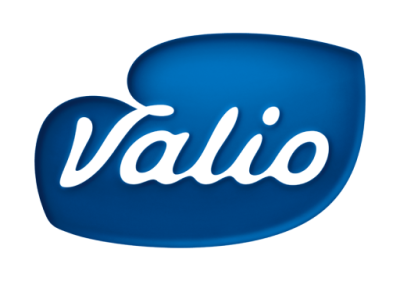“Figuring out new things is more fun than being right” – Tuuli Hakala’s job is to reduce milk’s carbon footprint

Tuuli Hakala has spent her whole life advocating for the wellbeing of animals, nature and people, and would prefer to figure out new things than to be always right.
Your job is to reduce Valio milk’s carbon footprint. What does that actually entail?
To do this job right, you have to know milk’s climate effects extremely well: where they come from exactly, what the results of recent research is, and what the public discourse around the subject is like. Most of milk’s carbon footprint is created in primary production, i.e. at the dairy farms. Feed production and cows, being ruminants, make up the largest share of milk’s climate emissions.
I’m always reading something on the subject, and most recently on my list have been ways to control the emissions from peat fields. I meet with a lot of people, both in-house and externally. Different events are important for growing my knowledge and developing my networks. Being in contact with the milk producers and visiting their farms is also an important part of my work.
My first degree was that of an agronomist, and I value the work Finnish farmers do very highly. I see maintaining agricultural livelihoods and local food security as being very important – to make sure that we continue to have food produced in our own country. I’m a developer by nature and in my current work, I’m overjoyed to have the opportunity to increase my knowledge of animal, soil and climate sciences.
In your work, you focus especially on methods for binding atmospheric emissions. Tell us more!
We want to promote the carbon farming approach at farms: milk producers can reduce their farm’s greenhouse gas emissions by farming grass that binds carbon effectively. That grass is also their animals’ main source of food; our cows don’t get fed any soy. It is possible to enhance carbon binding to the soil by maintaining the soil in a sustainable manner, leaving longer stalks when cutting the grass, and choosing a large variety of plants to grow.
It’s possible to control the volume of greenhouse gasses in the atmosphere by reducing our use of fossil fuels. Valio’s answer to this challenge is its own technology to convert cow manure into traffic-use biogas. The process also generates clean water as well as nitrogen and phosphorus fertiliser for use in the field.
Of course, we are working throughout the production chain to reach the goal: carbon-neutral milk in 2035. The important questions are related to logistics, plant energy efficiency, waste and packaging, among other things.



Who is Tuuli Hakala?
- AGE: 35 years old
- Development manager for Valio’s Carbon Neutral Milk Chain team
- Her master’s thesis, published in autumn 2019, is a study on the climate effects of Finnish milk and beef production from a lifecycle approach perspective.
- Something in particular that she likes about her work at the moment is getting to take the sleeper train to northern Finland to meet Valio milk producers to develop solutions for reducing peat field emissions.
- Uses Valio’s red whole organic milk in her morning coffee.

